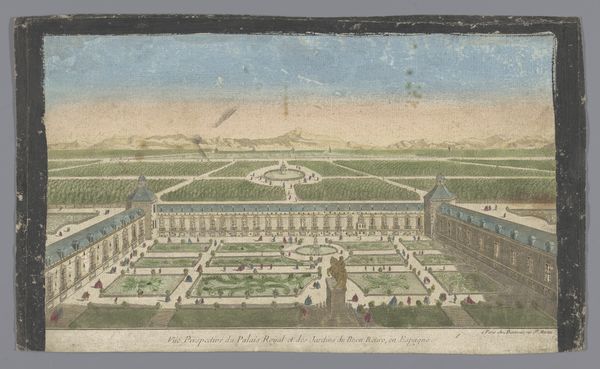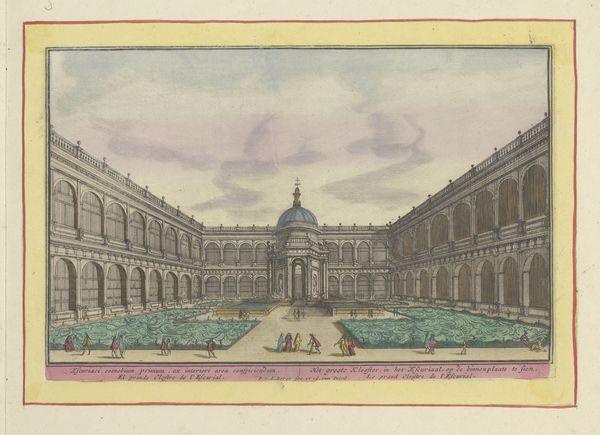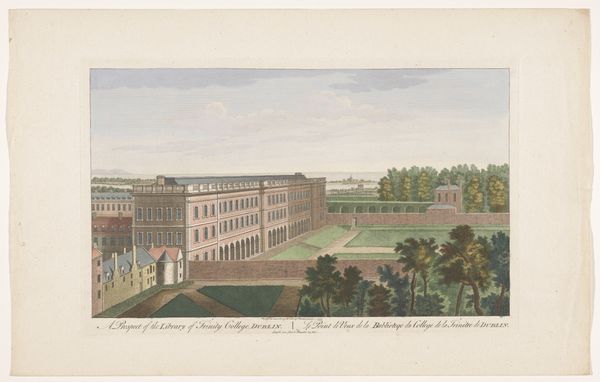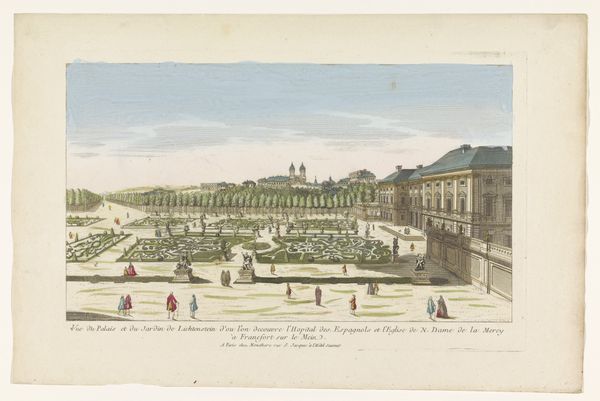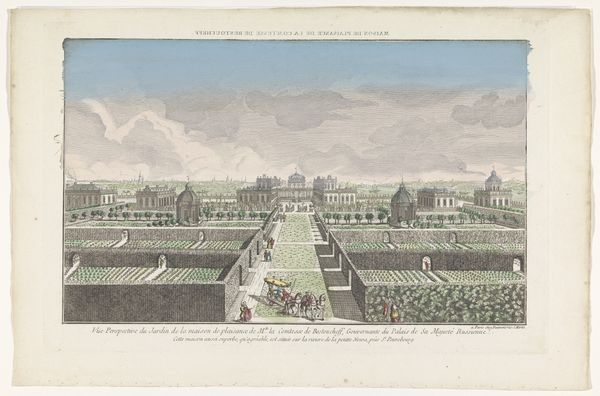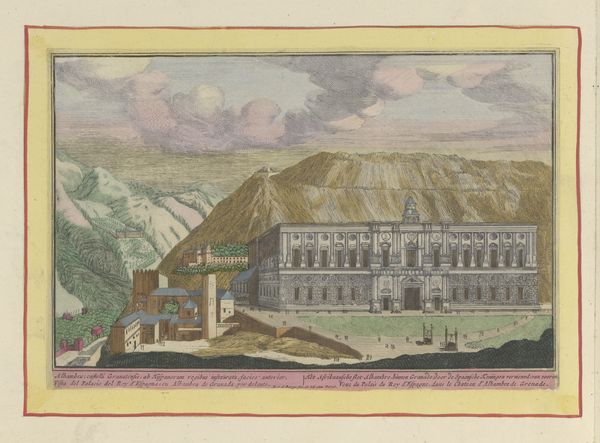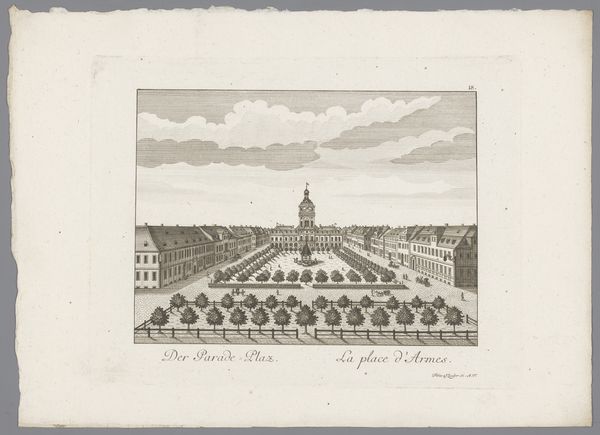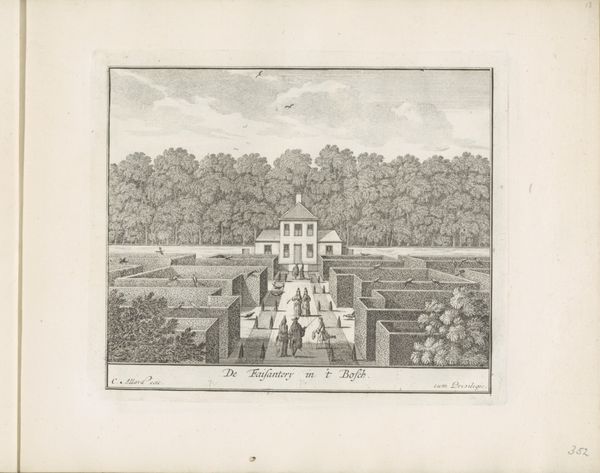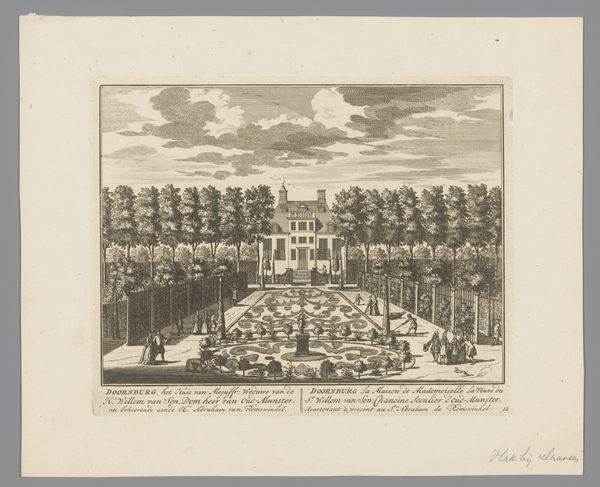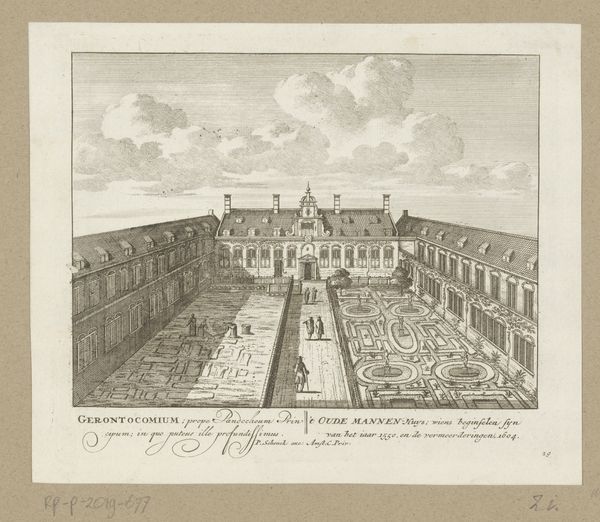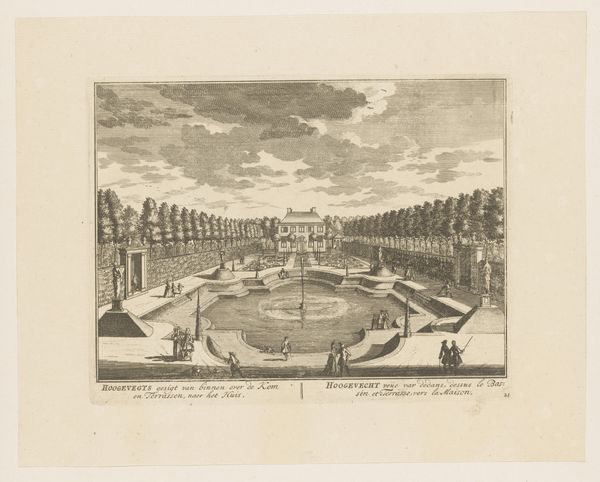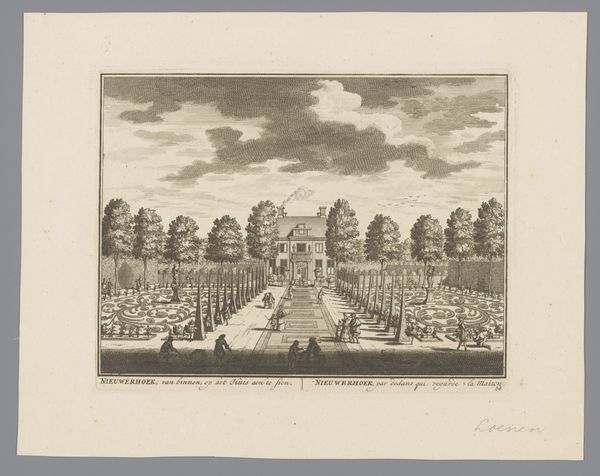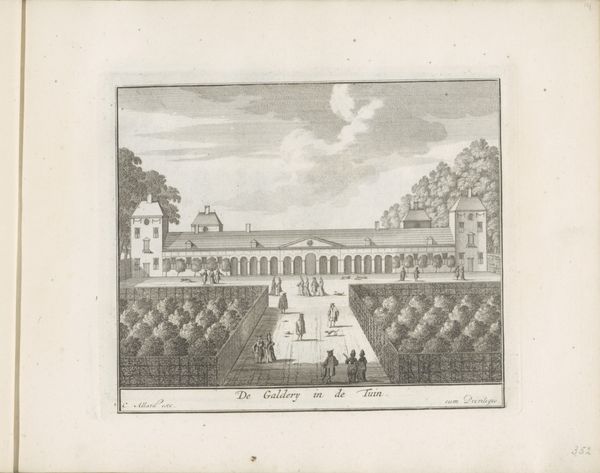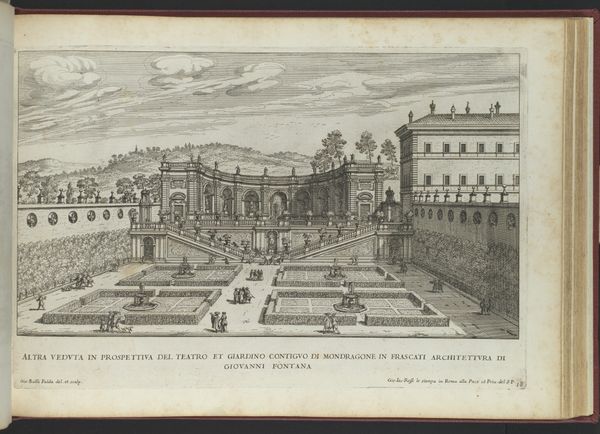
print, engraving, architecture
#
baroque
#
dutch-golden-age
# print
#
landscape
#
cityscape
#
engraving
#
architecture
Dimensions: height 166 mm, width 187 mm, height 255 mm, width 315 mm
Copyright: Rijks Museum: Open Domain
Editor: This print by Pieter Schenk, "Het oudemannenhuis in Amsterdam," from around 1700, showcases the old men's home. I’m immediately drawn to the composition; the building's rigid structure contrasts sharply with the almost playful garden designs. How do you interpret the symbols and imagery used here? Curator: The enduring cultural weight of institutions like this resonates, doesn't it? Consider how architecture, as a symbol of societal care, interacts with our perception of aging. Notice the formal gardens – aren't they almost a secular echo of paradise, promising serenity in later life? Editor: That’s a compelling point about paradise. Are those figures within the landscape merely inhabitants, or do they symbolize something more? Curator: What feelings do they evoke in you? Observe how their positioning within the manicured gardens contributes to a sense of ordered life. The symmetry, typical of Baroque sensibilities, could hint at the era’s ambition to impose control over the natural world, even in domains of old age and mortality. Do you see it functioning as a space of both refuge and regulation? Editor: I see that now. The regimented garden mirrors the building’s structured layout. Perhaps it’s about imposing order on a part of life that's often associated with decline. Curator: Precisely. Schenk subtly guides us to reflect on cultural attitudes toward aging, depicting a structured environment as a vessel for communal memory and continuity. It’s a potent visualization of how societies attempt to frame the aging process. Editor: I hadn't considered how much the design speaks to societal attitudes. I will definitely consider all this, when I visit it next time at the Rijksmuseum. Thank you!
Comments
No comments
Be the first to comment and join the conversation on the ultimate creative platform.
